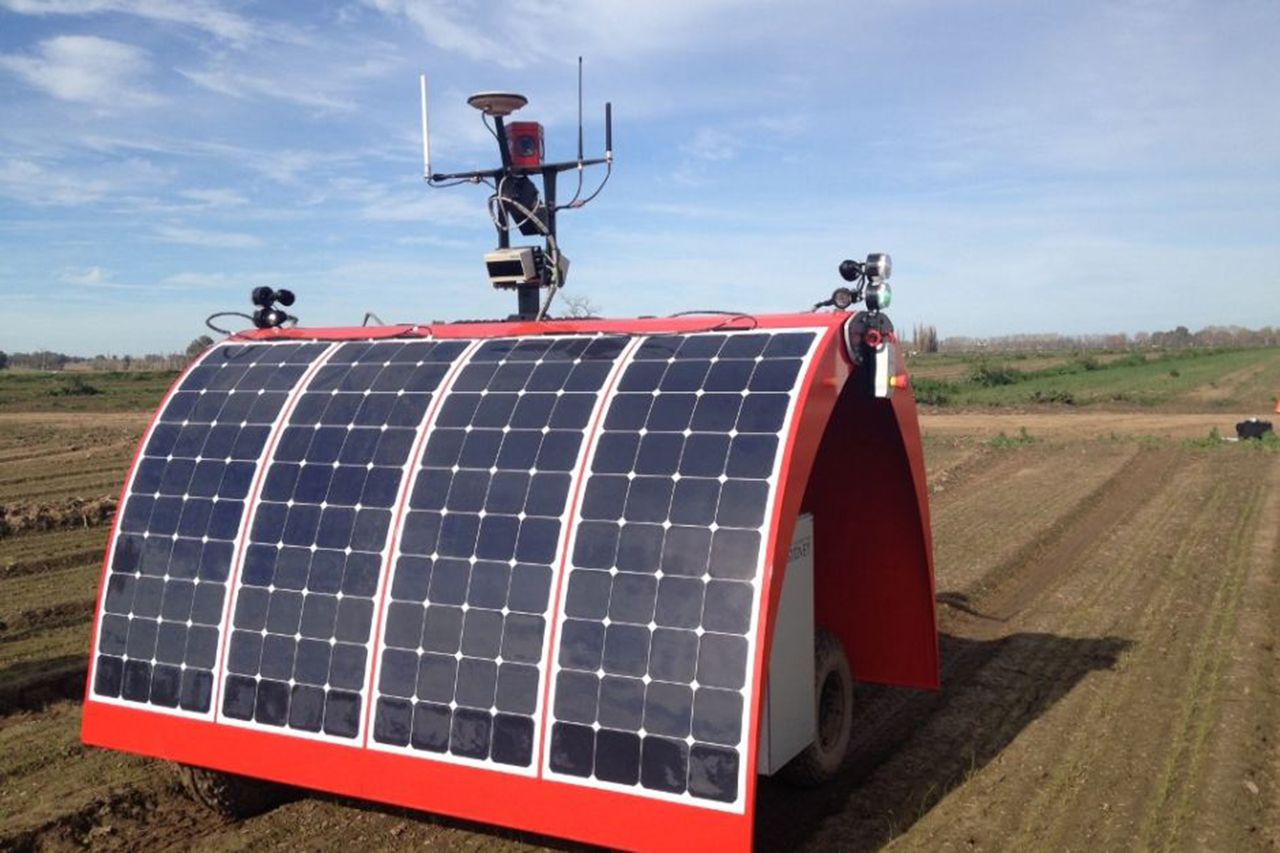Human tilling of the land is a distant memory for most developed countries that now use machines to farm. Those man-operated machine could soon also be a thing of the past as a solar-powered farming machine called Ladybird aims to do a better job than humans can.
The Ladybird, named that because of its shell-like photovoltaic panels, was developed by Sydney University as part of a $1 million research project. It's passed the testing phase and is now ready to start going to work.
The robot is able to monitor crops, spot pests (plant or animal) and cultivate vegetables. It's self-driving thanks to a laser-guidance system. At the moment it's primary task is to gather data and monitor. But it has a robotic arm for removing weeds which could also be used for autonomous harvesting.
Heat across the world affects crop yields forcing more precise farming methods. But will the cost of the Ladybird and maintaining it result in enough of a yield increase to pay for itself?
Ed Fagan, whose farm was used to test Ladybird, said: "The vegetable grower says that the Ladybird robot's intelligence gathering around pests and crop nutrition will be invaluable for farmers. A lot of the time in horticulture, if you're short of an element in the plant, by the time you see a symptom it's too late, they will be able to pick up a nutrient deficiency before we see any symptoms."
He also pointed out: "Secondly, you can use it at night at 2 o'clock in the morning and go out and do an insect survey, so things like cutworm popping out at night time, slugs, worms, things like that."
The future of farming may have arrived and it's an eco-friendly wonder.

